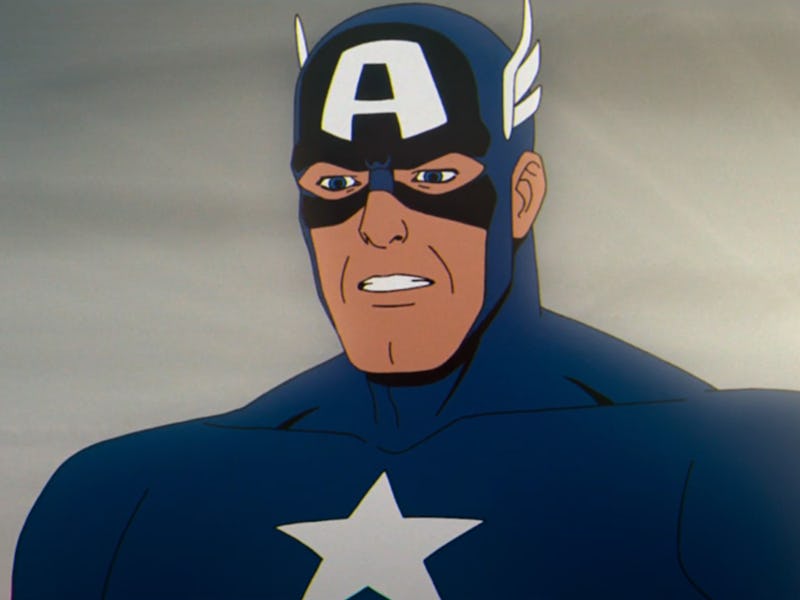Did X-Men ’97 Just Ruin a Classic Avenger?
The Star-Spangled Man makes an appearance in the animated series — but on the wrong side of history.

When it comes to the X-Men, it’s always the mutant team against the world, even if that means changing the core beliefs of another familiar superhero. We’ve seen this in the comics time and again, particularly when the X-Men faced the Avengers. Heroes who would otherwise stand up for mutantkind suddenly displayed surprising anti-mutant bias, creating rifts in characterization and sparking endless debates through the Marvel fandom.
That debate has been rekindled with the latest episode of X-Men ’97, which pits a beloved Avenger against a popular X-Man. Let’s break down Captain America’s brief clash with Rogue, and why it goes against everything he stands for. Spoilers for X-Men ’97 ahead.
In X-Men ‘97’s latest episode, Rogue faces off with “America’s top cop.”
After the massacre at Genosha and the demise of Gambit and Magneto, Rogue is on the warpath. While the rest of the team does what they can to help the mutant nation rebuild, Rogue sets off to find the mastermind behind the attack. She soon crosses paths with Cap, who brings her up to speed on everything he knows.
Their only lead is Henry Gyrich, a bigoted federal liaison who worked closely with Bolivar Trask (who created the first Sentinels). According to Captain America, Gyrich was transported from Rikers Island to an off-site facility in Mexico. It’s out of the United States’ jurisdiction, so Cap is waiting for “the thumbs up” before apprehending and interrogating him.
For anyone with a surface-level understanding of Cap’s character, his hesitation makes sense. In many X-Men crossovers, Cap is positioned as a neutral middleman, favoring temperance and by-the-book operations instead of taking a stand with the mutant race. He’s depicted as the state’s lap dog, and X-Men ’97 doesn’t do much to refute the idea. Rogue even calls him “America’s top cop.”
Captain America is often depicted as a hired goon, but his principles should always place him on the right side of history.
In reality, though, Captain America usually fights alongside mutantkind. He’s a fierce defender of mutants in his own comics, going out of his way to protect the X-Men even if it means facing off against S.H.I.E.L.D. and other agents of the state (see Wolverine/Captain America, by R. Jones and Tom Derenick, for the best of Cap’s advocacy).
So why is X-Men ’97 pitting Cap against the mutant team, especially after witnessing the Genosha genocide? He’s worried about “sending a message” by going off-book with Rogue, but there’s no better time to send a message in support of mutants. Cap has gone against orders for much less, so seeing him hesitate to cross the line here just feels like a blight against his true nature.
The X-Men have always represented the plight of the marginalized. That means non-mutants can be used as a tool for opposition, even if they would otherwise side with the team. Cap’s X-Men ’97 cameo does reinforce the idea that the X-Men are truly alone in this world, but it compromises his integrity to do it. It’s frustrating to watch, especially since there are plenty of other Avengers who actually would stand against the X-Men.